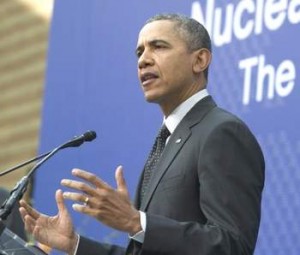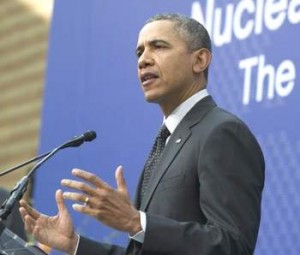Russia’s refusal to attend should not hinder work of reducing nuclear material scattered across world
Gulf News
Editorial
 US President Barack Obama’s final Nuclear Security Conference is due to start tomorrow, and it is necessary that it fulfils its substantial agenda, even if the conference is blighted by the non-attendance of Russia thanks to the dramatic chill in relations with the US over Russia’s actions in Ukraine.
US President Barack Obama’s final Nuclear Security Conference is due to start tomorrow, and it is necessary that it fulfils its substantial agenda, even if the conference is blighted by the non-attendance of Russia thanks to the dramatic chill in relations with the US over Russia’s actions in Ukraine.
When Obama started the conferences, he said that access to nuclear material is “the most extreme threat to global security”, and he hoped that the conferences would result in securing “all vulnerable nuclear material around the world within four years”. This has not happened, but the three previous biannual Nuclear Security Summits that started in 2010 have done a lot of important work as they have reduced the amount of nuclear material scattered across the world. They have also set up an institutional structure that has strengthened international cooperation on this agenda, rather than leaving it to be the subject of minor debates in larger security conferences that are always dominated by the urgent, which reduces the time they are able to spend on the important.
Obama’s programme of increasing nuclear security is all the more important in the wake of the horrific terrorist attacks in Paris and Brussels, and in Iraq and Pakistan, and many other places. The possibility of terrorists, in this active surge in terror attacks, seeking to use nuclear material to expand their impact would be an exceptionally dangerous development. Limiting the volume of nuclear material around in the world is an essential first step to making the world a safer place, and they should be followed up by conferences’ suggestions of international protocols to enhance security.



